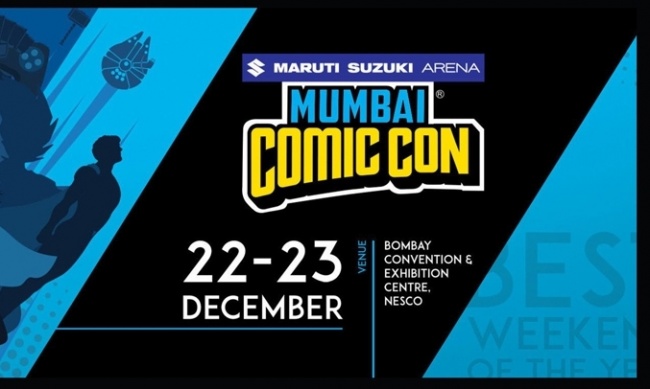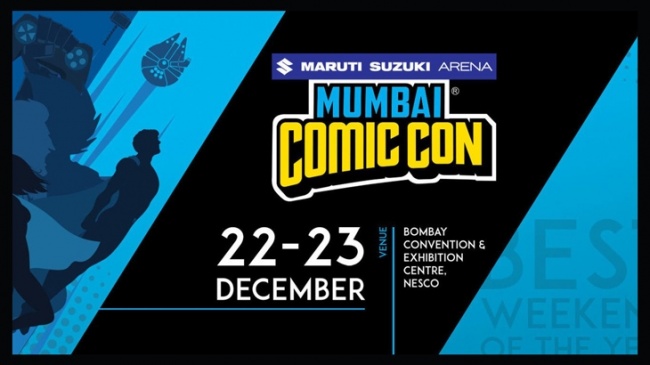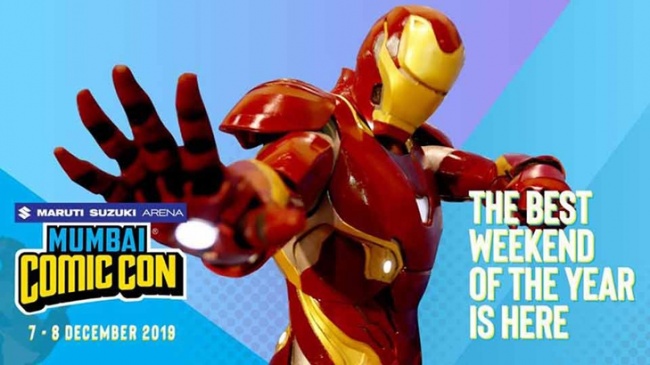Last week, I really thought that I was finished writing about comic books cons for a while anyway (see “Confessions Of A Comic Book Guy -- International Edition”), but then I came across a online article on the subject. The conventions listed in this article sounded intriguing (Fan Expo Canada in Toronto, Katsucon, Flame Con and especially Rhode Island Comic Con, “the biggest con in the smallest state”), but the one that caught my attention was Colossal Con in Sandusky, Ohio, an “anime and gaming” con with “a dealers room, artist alley, and formal cosplay ball” being held at Kalahari Resort “the largest indoor and outdoor waterpark in America, with slides, wave pools, and jacuzzis”. And if “you stay at the resort, you have access to the water park with your room key or wrist band”, something which, as a big fan of low impact water activities (well, floating, anyway), sounds pretty swell. The piece describes Colossal Con as “a giant cosplay pool party,” and while I myself don’t cosplay, I must confess, I’d kind of like to see what a giant cosplay pool party looks like.
And while I'm still on the subject of cosplay and cons, I have to confess that I'd totally forgotten there had been another big international comic book convention in December. That is until I read When Thanos came to Mumbai: What happened at Comic Con 2019. On the surface, the piece makes the Mumbai Comic Con seem like a pretty ordinary contemporary convention, at least that's what I thought until I got to the part where it began describing the cosplay. Along with those cosplaying as local comic characters people there came as characters from "every comic book series, manga and movie”. Plus there was someone “dressed up as Jim Halpert from the popular TV show, The Office”.
Now, I’ve admitted that I’m no cosplayer, and it has been a while since I’ve actually been to a convention, but this struck me as odd; not that someone from India would dress up Jim Halpert as much as anyone would. But then, I was able to put the isolated incident into some kind of context. According to Mumbai Comic Con 2019: What To Expect, the floor of the con was divided into “experience zones” where “fans can briefly become a part of their fandoms and capture otherworldly moments”. These ‘zones’ included usual suspect corporate brands like Warner Bros, WWE, Comedy Central, Doritos (?!), DC, and Marvel. As well as “what was being referred to as the ‘friend zone’, which had no relation to the colloquial term of one’s romantic refusal by their friends. It was a set up of the coffee shop Central Perk from the TV show Friends, which was complete with the orange couch and coffee mugs, that acted as a ready photo studio.”Now, the situation comedy Friends just celebrated the fact that it’s been 25 years since it first aired in America and is, almost inexplicably, incredibly popular with a whole new generation. According to In 2019, TV's 'Friends' Remains Successful And Divisive, Friends "was the second most watched show on all of Netflix last year. More people spent more time watching 'Friends' than any original Netflix show."
None of the new viewers seem to find it dated, which I find plenty peculiar, given how very much of the moment the show was. I watched it when it was on television, and it seems pretty dated to me. I will without hesitation declare it to be the "single most 90's thing to ever come out of the 1990's", and I know there’s a long list of contenders for that title. At the time, both the comedy and situations seemed thin and ephemeral, and a couple of decades later, it doesn’t seem any more like a “classic” to me.
But I get that there are “fans” of Friends in America, who watch and buy the shows and buy show merchandise and unironically wear the t-shirts, but I generally don’t see it as having a “fandom”, at least as I understand the concept. The show was so ubiquitous it wasn’t so much pop culture as mass culture; even people who didn’t watch the show knew at least something about the show by osmosis. And I certainly can’t imagine a fan of Friends dressing up as one of the characters with the exception of Halloween costume.
But, after even the briefest of internet searches, it became clear Friends wasn’t just popular in India, it was also important, influential and even aspirational. According to 'Friends' cured India of its colonial hangover ‒ and made it fall in love with America, it was the TV show that “taught us how to speak in a new way and loosened our attitudes to sex.” It also introduced coffee drinking as a national habit and supposedly, in Mumbai, it’s "far easier to find a cappuccino than a cup of chai (tea).” So, I supposed it’s only understandable if given the opportunity some Indians would welcome the chance to briefly immerse themselves in what to them is a fantasy setting.
Which, I suppose, goes to show you just how popular American popular culture still is all over the world, and that you never know what kind of impact it will have on other countries and cultures.
The opinions expressed in this column are solely those of the writer, and do not necessarily reflect the views of the editorial staff of ICv2.com.





